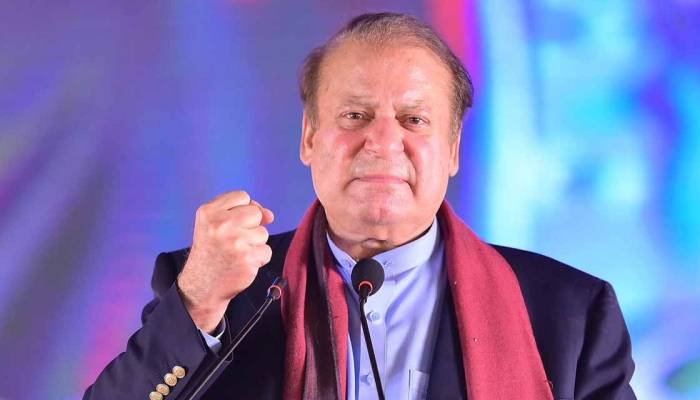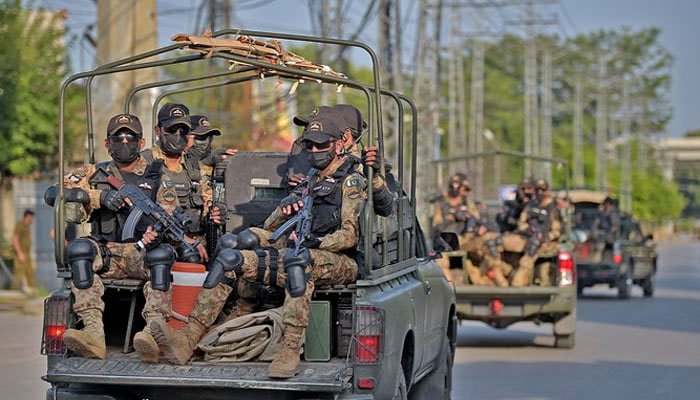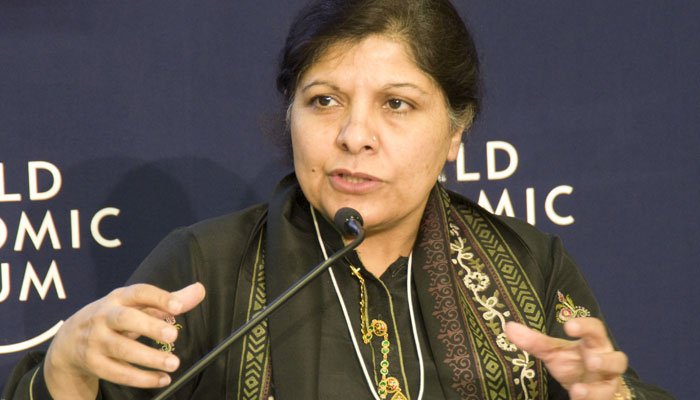Notably, in December 2020, the IHC had declared Nawaz Sharif a proclaimed offender in the case.
Nawaz Sharif acquitted in Avenfield reference. The Islamabad High Court (IHC) on Wednesday acquitted former prime minister and Pakistan Muslim League-Nawaz supremo Nawaz Sharif in the Avenfield reference case after the NAB took back the case filed against him.
The Islamabad High Court (IHC) conducted hearings on appeals filed by Nawaz Sharif against the sentence in the high-profile Avenfield reference.
Islamabad High Court (IHC) Chief Justice Aamer Farooq and Justice Miangul Hassan Aurangzeb announced the verdict on Nawaz Sharif’s appeal challenging his conviction.
The judgment overturned a previous decision by an accountability court in July 2018, which had sentenced the PML-N leader to 10 years in prison in the Avenfield properties corruption reference. The charges included the ownership of assets beyond known income and non-cooperation with the National Accountability Bureau (NAB), both concurrently serving a 10-year term.
Notably, in December 2020, the IHC had declared Nawaz Sharif a proclaimed offender in the case. Subsequently, he sought refuge in London on medical grounds, residing there for almost four years until his recent return to the country last month.
Upon returning, Nawaz Sharif filed an application for the reinstatement of his appeal against the conviction. Arguing that during his medical treatment abroad, the pending appeals had been dismissed for non-prosecution, he petitioned the court to revive and adjudicate on the appeals based on their merits. Last month, the IHC, acknowledging the merits of the plea, reinstated the appeal in question.
As the legal proceedings unfolded, Nawaz Sharif’s legal team approached the rostrum, led by counsel Amjad Pervez. He argued that the accountability court had exonerated the PML-N leader from Section 9A of the NAB Ordinance in the Avenfield reference. Now, only Section 9A(5) remained relevant, dealing with assets beyond means, Amjad Pervez explained, emphasizing the necessity for the prosecution to establish the accused as a public office holder.
“Under Section 9A(5), the prosecution has to prove certain facts, and the accused is required to be shown as a public office holder,” he asserted, highlighting that the law mandated a disparity between the accused’s income and assets. Justice Aurangzeb remarked that Nawaz’s sentence suspension was likely based on these grounds, referencing previous Supreme Court judgments relied upon for the decision.
Amjad Pervez continued, contending that the investigation agency had failed to prove all sections of the alleged crime, emphasizing the lack of evidence supporting the case’s contents. Subsequently, he submitted detailed, date-wise information on Nawaz’s assets, prompting a query from the IHC CJ regarding the timing and linkage of the requisitioned properties.
“These properties were obtained from 1993 to 1996,” the lawyer clarified, asserting that the reference did not establish a direct connection between these properties and Nawaz.
Amjad Pervez stressed the absence of documentation supporting Nawaz’s ownership of the properties, citing the prosecution witness Wajid Zia’s acknowledgment during cross-examination that there was no evidence tying Nawaz to the assets.
Justice Farooq queried about the inclusion of acquisition dates and property values in the submitted documents, to which Amjad Pervez responded that while some details were present, there was no information proving Nawaz’s connection to the properties.
The lawyer highlighted the lack of evidence regarding the ownership of the properties and the absence of proof that Maryam, Hussain, and Hassan Nawaz were under PML-N’s patronage. He argued that the prosecution needed to establish these points.
Justice Aurangzeb interjected, questioning if the NAB prosecutor was noting Amjad Pervez’s crucial points. Amid laughter in the courtroom, the prosecutor confirmed, albeit without a pen in hand.
Amjad Pervez continued, arguing that the prosecution was obligated to explain how public office was utilized to acquire “benaami properties” and referenced Supreme Court orders on the matter. Justice Aurangzeb directed the lawyer to assist the court in understanding these aspects under the NAB Ordinance.
Amjad Pervez contended that the court’s verdict was based on assumption rather than evidence, pointing out the court’s characterization of Maryam Nawaz as a beneficial owner under the PML-N leader’s patronage. He referred to a previous Lahore High Court decision acquitting a NAB suspect based on similar grounds.
Justice Aurangzeb highlighted a recent court order outlining four categories to be proven regarding benaami properties or accounts. The NAB prosecutor attributed the reference to the Supreme Court’s judgment.
The case history
The Avenfield reference centers around the acquisition of four flats in Avenfield House, Park Lane, London. This case was one of three initiated by the National Accountability Bureau (NAB) against the former prime minister and his offspring following the Supreme Court’s directive in the landmark Panamagate verdict on July 28.
Commencing in September 2017, the proceedings in the Avenfield reference led to the indictment of Nawaz Sharif, Maryam Nawaz, and Safdar on October 19, 2017, as declared by an accountability court.
In the Panamagate case’s Joint Investigation Team (JIT) report, it was revealed that the Sharif family had provided conflicting statements regarding their ownership of the London flats. The report concluded that the flats had, in fact, been in their possession since 1993. Notably, Nawaz Sharif distanced himself from the apartments, struggled to elucidate the timeframe and procedures involved in his sons obtaining ownership of the Avenfield apartments, and remained uncertain about which son currently claimed ownership.
In a significant development, an accountability court in July 2018 sentenced Nawaz Sharif to 10 years in prison for possessing assets beyond his known income and an additional year for non-cooperation with the NAB in this case. The verdict also included a fine of £8 million. This legal episode unfolds against the backdrop of the broader Panamagate scandal, shaping the political and legal landscape in Pakistan.





